KOSOVO AND METOHIJA IN TODAY’S SERBIA
 Posted by: Επίσκοπος Αυγουστίνος Καντιώτης on
Posted by: Επίσκοπος Αυγουστίνος Καντιώτης on  Μαι 5th, 2010 |
Μαι 5th, 2010 |  Filed under: English
Filed under: English
Гледишта
KOSOVO AND METOHIJA IN TODAY’S SERBIA
(ΠΩΣ EINAI TO KOΣΥΦOΠΕΔΙΟ KAI TA ΜΕTOXIA ΣHMEΡA)
By Kosara Gavrilovic
Before I begin my talk on Kosovo and Metohija in today’s Serbia I must express my gratitude to Father Victor for allowing me to share with you my impressions of Kosovo and Metohija and thank you all for staying behind after the Liturgy just to hear me speak.
I must also ask you to bear in mind four things:
1. I stand before you not as anybody’s representative. I speak to you simply as myself. I speak as someone who has spent a year and a half in the monastery of Gračanica in Kosovo dedicated to the Dormition of the Most Holy Mother of God. The fact that I live and work there as a translator/interpreter of His Grace Artemije, Bishop of Ras-Prizren and Kosovo-Metohija, doesn’t mean that I am speaking to you on his behalf. I speak to you without his permission or knowledge because when I took my leave of him neither he nor I knew that this would happen. However, since my arrival hardly a day went by without someone asking: “How are things in Kosovo?” And every time I was asked this question I gave the same answer: “Things in Kosovo and Metohija are bad and will get much worse.” And every time I gave this answer I realized anew just how bad, how utterly awful things were. So I decided to tell you all about it and to ask for the Bishop’s blessing after the fact hoping that he would forgive this sin of self-willfulness.
2. If I speak about something as a fact, it means that I have either seen or heard it myself or have heard it from an unimpeachable source. But we must remember that we live in an imperfect world where even unimpeachable sources may make mistakes.
3. If I leave out things that are of interest to you, you can bring them up either as questions or as your own comments after my talk.
4. And finally I must warn you that what I have to say will be very unpleasant. It will be very unpleasant for the Russians, even more so for the Americans and most of all for the Serbs here. But I beg you to hear me to the end. Hear me for your own sakes because it is as much about you as about us. I am not asking for help. No one can help us. Only God can save us now.
Having heard this warning you have probably concluded that in my view the chief culprits for the catastrophic situation in which Serbia finds herself today are the Serbs. And you would be right: we are the chief cause of our misery. However, this does not mean that Albanians are not killing us. They kill us every day, and every day they make our lives just a notch harder to sustain. With every day that dawns there are fewer Serbs in Kosovo and Metohija. We are slowly disappearing from Kosovo and Metohija. But that is nothing new. You know it all already.
Neither does it mean that the West as a whole and America in particular are blameless in this catastrophe. They have played a very dirty role in the case of Serbia. America’s behavior towards Serbia was immoral, dishonorable, in contravention of their own and international laws and contrary to their own interests. But I don’t want to talk about that today because the Albanians, Western Europe and America are far from what matters most in our lives today. It can truly be said of us: We have met the enemy, and the enemy is us.
Today I want to speak about a new danger which threatens you as well as us, and if you don’t understand that today, then tomorrow, or in a month or two — in any case in the near future — you will wake up one fine day and discover that this calamity is your reality, not only ours.
And now let us turn to Kosovo and Metohija in today’s Serbia and to Serbia in general—not because Kosovo and Metohija are an inalienable part of Serbia — not because they are “the heart and the cradle of Serbia,” not because they are “Serbia’s Holy Land.” They are all that but that is not the point. The point is that everything that happens today in Serbia is more than just connected with Kosovo and Metohija; it is defined by them. Everything that happens in Kosovo and Metohija depends directly on the government of the country in which these regions are located, namely on Serbia. And also because what is happening today to Orthodoxy in Serbia is inextricably linked to Orthodoxy all over the world.
What can I tell you about Serbia in general and in particular about the situation of Kosovo and Metohija within it today? Is it possible at all to speak about today without saying at least a few words about yesterday and even times long past? You already know that the story of Serbia is a story of continual, or continually repeated, divisions. It is a story of endless disagreements and fateful internecine troubles. By the way, some seventy years ago, when I was in junior high school and just started to learn about Serbian history, there was a word which kept cropping up at every history lesson with amazing frequency. None of us in the classroom knew what the word meant, but it sounded dark and evil as, indeed, it should have done since it explained all the failures and all the defeats of our early history. And although we as school children did not understand the meaning of the word medjusobica even then we began to realize that internecine troubles were the curse of Serbia. But the identification of the root of one’s troubles is one thing and the eradication of it is something quite different. Internal divisions were and will always be the curse of Serbia.
It is not surprising then that even today Serbia is a divided country. When I think of Serbia I see the Serbian symbol—a large cross dividing the space into four open quadrants, each containing the letter “S.” These letters stand for the absurd and yet wholly accurate Serbian motto Cамо Cлога Србина Cпасава — only concord saves the Serbs — but instead of When I think of Serbia I see the Serbian symbol—a large cross dividing the space into four open quadrants, each containing the letter “S.” These letters stand for the absurd and yet wholly accurate Serbian motto Cамо Cлога Србина Cпасава — only concord saves the Serbs — but instead of these letters I see four segments of Serbian society divided by a cross.
Vertically, society is divided into: 1. The State headed by the secular government and 2. The Church with its government, i.e. The Holy Assembly of Bishops and the Holy Synod of Bishops. These two segments are clearly separated from each other. Horizontally, society is divided into those who govern and those who are governed. In the third quadrant we have the non-believers who are subject only to the secular government. The segment in the fourth quadrant represents those who believe, i.e. the clergy, the monastics and the congregation. But this last segment must submit not only to the church government but also to the state government. This has always been the case. Today, however, each one of these four segments is further divided in two parts—parts which are far from being equal. One part, headed not only by the secular government but also by the church government, is much bigger and much more vociferous and powerful than the other part, which seems to me to be so small as to be virtually invisible. The majority is furiously determined “to join Europe.” While we in the other part ask: “What? Are we not in Europe?” If you were to ask people in the street why they are so eager to get into Europe, what they expect to find in Europe, you would get the impression that their only real desire is to get a visa and be able to travel. For the Serbs the Visa has become a new Golden Calf. If you were to ask them further what they would do in that promised land to which the so passionately desired visa would take them and which is called the European Union, you would not get a straight answer. Not because the people are afraid to say what is in their hearts. No, the people of Serbia are no longer afraid of anything — and that is the trouble. This phenomenon is worth elaborating on because this absence of fear is in fact one of the greatest and most frightening problems facing Serbia today. You would not get a straight answer because there isn’t one. People don’t know why they want to travel. It doesn’t matter to them. They don’t care where they would go; they don’t care what they would do once they get there. It seems to me that they want to travel so as not to be alone anymore, so as not to feel lonely, abandoned and rejected by all. The Serbs are sick and tired of loneliness. But the tragedy lies in the fact that they don’t seem to understand that once they get to the European Union they will continue to be just as alone and rejected as they do today because the European Union is a club for the chosen ones, a club so exclusive that even the membership in it would not guarantee their reception as equal members. Poland, Bulgaria and Romania and even Greece know this already. But the Serbs seem to be deaf to their bitter complaints against the “promised land.” The Serbian people look with absolute indifference at a considerable body of evidence of the fact that for the Bulgarians and the Romanians Europe proved to be the wicked step-mother of fairy tales rather than the loving mother they had expected. Nations, just like ordinary people, hardly ever learn from the mistakes of others.
And what about the Serbian government? The Serbian government probably knows why it wants so badly to be part of the Europe Union. It is very articulate in its explanations as to why we must consider the European Union the Promised Land and it does not understand why that other part, that small, insignificant, barely noticeable part of Serbia which is against it, does not believe its government. We don’t believe our government for many reasons, the first of which being that we know perfectly well that the European Union will never accept us. We may fulfill all conditions set before us EU will present us with a new condition, never before mentioned, and demand of us to fulfill it. We know this and the government knows it, but the government does not care. It is not afraid of any new conditions that the European Union may dream up. Evidently it has its own interests. What are these interests? I don’t know, but I am sorely tempted to say that our government has been bought.
All those in the pro-European camp, all the Westerners—in the government and outside the government—think that the greatest obstacle on their way to Europe is the Province of Kosovo and Metohija. They are firmly convinced that if only they were to disappear off the face of the earth, we would be admitted to the European Union that very second, and together with Kosovo and Metohija would disappear all our problems—economic, political, social, spiritual and ecclesiastic problems. You might say: “Surely not ecclesiastic problems. What can they have to do with Kosovo and Metohija?” But I assure you that the European-bound Serbian public thinks that the serious problems which plague our Church today would be cleared up immediately with the disappearance of Kosovo and Metohija.
You have already heard me speak of divisions within Serbia and of internecine troubles which have been the curse of Serbia since the beginning of her history. But in contrast to our present life there was something in the Serbian past which was indivisible and never divisive. That was the Church. Yes, I know. The Church has always known schisms; there have always been heresies among the people. But in the Serbian Church after the fourteenth century, after the Turkish invasion, after destruction of the Serbian empire the Church survived. It survived without its external splendor, without rich vestments and magnificent, gold-encrusted icons, without the angelic sounds of its choirs, but also without schisms. The Church survived. Poor, persecuted, driven underground the Church survived. Even the communists failed to destroy it entirely. It survived until the end of the twentieth century and then it stumbled.
As I said, our Church today is just as divided as is the government, as is the nation. The nation is divided on such issues as “Should we join Europe or not?” “Together with Europe towards globalization or not?” The Church is divided on the same issues. But for the Church these issues are a little more complicated than for the rest of the world. The Church cannot consider these issues from a purely economic or geopolitical point of view. As far as the Church is concerned these questions lead to a whole series of other issues which are of moral or spiritual or purely ecclesiastic nature which the Church must take into consideration. We could expect also our government and our people individually and collectively as a nation to try to answer such questions as “ What Europe are we so anxious to join? Is it the Europe which calls the NATO bombing of Serbia, in which over 3000 civilians, including children, died, a humanitarian intervention? Or is it the Europe which dares not protect the rights of its Christian citizens because that would not be politically correct, while at the same time diligently protecting religious rights of the Muslims?”The government, of course, is not obliged to take care of the spiritual life of its people, but the Church is. The Church is obliged to take care of the spiritual salvation of its faithful. We look to our Church for salvation. We look for the truth in our apostolic Church. Christ called the disciples the salt of the earth. “But if the salt should lose its savor with what shall it be salted?” (Mt 5:13) What if the Serbian bishops lose that which should be their chief attribute, that which should define them? What if the Serbian bishops have decided to join the secular government in its pursuit of western values? What if they also want to join Europe and together with the European Union embrace globalization? Do they even know what “globalization” means? Can they, explain to us why they, our hierarchs, are so frantically anxious to join Europe?
Each bishop has his own reason. Some are greedy. Others are insatiably ambitious. There are yet others who are afraid. Fear is an amazingly convincing reason.
I know personally of two bishops whom the State Department has blackmailed into submission maintaining that they are war criminals, that the US government has incontrovertible evidence of this and that at any moment they could find themselves in The Hague being charged of war crimes. However, the US government considered it more useful for America, or so the State Department maintained, if they remained at their posts and collaborated with America. And they were frightened and behaved like cowards. They remained at their posts and meekly started doing America’s bidding.
Towards the end of the Bosnian war, or immediately afterwards, I no longer remember the exact year, I interpreted for one of them. I was with him in the Congress when he was accused of ethnic cleansing. It was Bishop Atanasije whom I knew well and respected and loved deeply. I knew at the time that he was not guilty of what they were accusing him. I knew it not only because I knew him and loved him. I knew it because I saw his face; I heard his voice as I listened to his responses and most of all because the accusation made no sense. No one in their right minds would consider his actions, which, incidentally, he never denied, anything but an act of courage and humanity. No court in the world would ever try him—except, of course, the court at The Hague. I don’t know whether The Hague accuses him of other crimes as well. Nor do I know what charges America thinks could be brought against Metropolitan Amfilohije. I don’t know whether the State Department really has any incontrovertible proof of crimes committed by either of the two hierarchs. I don’t know and it does not matter. What matters is that they are both guilty of something else: they were frightened and they behaved like cowards.
To be afraid is not a sin. The Holy Apostle Peter was afraid and gave in to his fear, but it did not stop him from hearing the cock crow. He repented and wept. But Amfilohije and Atanasije not only behaved like cowards they became cowards. And when they became cowards two of the three of the strongest and most fervent defenders of Orthodoxy, of Orthodox truth and the Serbian Orthodox people became the chief proponents of Western Europe, America, their values, their needs and their plans for the New World Order. And worse than that, they not only sinned but they found it necessary to construct a whole new concept of the Church, her dogmas, our entire faith in order to justify their sin.
And so a new heresy appeared in Serbia. Truth to tell, this was not a new heresy. It had appeared first in Greece some ten years ago or maybe even earlier. One might say that in Serbia the first to notice it were our village grandmothers. They might not know how to read or write but they know their liturgy by heart. And the liturgy suddenly started to change. First there were almost imperceptible changes in the order of the service; then there were omissions—or it only seemed so to the old dears? But when it came to the Great Entrance and when the choir was forbidden from the ambo to sing the Cherubic Hymn, it wasn’t just the old village grandmothers who noticed that something was not quite right. And when it became known that confession was no longer necessary, it became clear to everybody that things were pretty bad. Serious talks then began within the Church, which the Church tried to keep secret. But it failed. The people knew. Not everything, of course, not every detail, but some very important and very sad and frightening facts did reach the people. We learned for instance that when one of the bishops who did not share the views of Bishop Atanasije said to him “What you are doing is against the canons,” Atanasije replied, “In new reality canons are for the birds” (У новој стварности каноне мачку о реп.).
These are the words of a man who until recently was one of Serbian great canonists, respected not only as an expert in canon law, but even more as one of its zealous defenders.
And what, might one ask, is “new reality?” Or as it is mostly called “new evolving reality” or yet “realities” in plural?” Don’t you find it frightening to think of all these new realities? What and how many are they? And how far are they likely to evolve? And what will they evolve into?
Don’t you feel the earth beneath your feet shift? Doesn’t it make you seasick? And this is not something thought up by a “mad scientist.” This was a Serbian bishop speaking, a hierarch of the Serbian Orthodox Church in which we praise and glorify the Lord who has established us on the rock of His teaching. We can no longer stand firm on solid rock.
This was why it was decided last year to put the question of the new heresy on the agenda for the meeting of the Assembly of Bishops. The heresy, of course, is never referred to officially as heresy. It is called “changes” or, less frequently, “reforms”.
Last year, the people or rather that barely noticeable segment of society interested in such matters, waited with enormous interest, even excitement, for the Assembly of Bishops to meet and for the debate on the new heresy to start. We were not nervous or afraid. We were already celebrating the victory because we knew that Bishop Atanasije was to speak in favor of the reforms and that the canons were to be defended by the third of the Three Great As—the name by which Amfilohije, Atanasije and Artemije were called in the seventies of the last century. Our side never doubted that Bishop Artemije would win.
However, most probably the other side agreed with our assessment of the likely outcome, because at the very beginning of the session of the Assembly of Bishops the question of heresy was taken off the agenda. The same thing happened this year. The question of “changes” was put on the agenda and then, most unfortunately, removed from the agenda. I say “most unfortunately” because a discussion about proposed changes must necessarily involve a discussion of the heresy itself, and an open discussion of that question is essential for our spiritual welfare. It is absolutely necessary for us first to recognize the existence itself of the heresy and then identify its essence in detail.
A year ago, shortly before the convocation of the Assembly of Bishops, in one of his talks with his monks Bishop Atemije asked the following question: “What do you think, brethren, what is the most important question which confronts us today?” The answer unanimously given was, of course, “Kosovo and Metohija.” “No,” said the Bishop. “Not Kosovo and Metohija. After all, Kosovo and Metohija is just a piece of land. The most important question before us is how to protect and save our faith from heresy. ”
I am not going to analyze in detail the elements of the heresy. I shall only tell you what I was told by, those who understand these things better than I do, represents the core of the heresy—its principal dogma. Briefly, there is no sin. So now we know why no one in Serbia is afraid or ashamed of anything. There is no sin because through his passion on the Cross Christ “trampled death by death” and cleansed us not only of the original sin but of sin in general forever. In other words, in “new reality” all sins are forgiven in advance. It means there is no longer need for repentance. What could we repent of if there is no sin? It means confession is no longer necessary. We can still take communion, probably because it is considered a purely symbolic gesture.
“Kosovo is just a piece of land.” It is hard to believe that these words were spoken by the most passionate, the most tireless, the most fearless defender of Kosovo and Metohija. We who saw in him the second Holy Warrior Artemius could not believe that he actually said these words. But he did say them and much more. If we lose our faith, we lose also Kosovo. If we preserve our faith, God will preserve our Kosovo, if it is his will. And having said this Bishop Artemije gave the Synod an additional pretext for his removal.
The Synod has been trying for a longtime now to remove Bishop Artemije. He was repeatedly accused of financial malfeasance, for instance, but the charges could never be substantiated. In the fall of 2004 they tried to declare him insane. They even tried to convince me that he was seriously mentally ill. The then hieromonk and today’s Bishop of Australia and New Zealand, Irinej Dobrijević, and Suffragan Bishop Teodosije Lipljanski called me by phone and asked to meet with me to explain more fully Bishop Artemije’s mental condition. That meeting never took place. I was not convinced and I don’t believe that many were.
What form did Bishop Artemije’s insanity take? One of the symptoms of insanity was said to be his staunch refusal to allow the churches and other church buildings, including the Bishop’s Palace in Prizren, destroyed or heavily damaged on March 17, 2004, to be rehabilitated by the same Albanians who had wrecked them in the first place. One might say that his refusal, under the circumstances, was eminently reasonable. However, the European Council, which wished to be involved in the financing of the rehabilitation project, insisted that contracts be given to Albanian contractors. Since the Bishop refused to do so, the European Council turned to the Synod, and the Synod ordered Bishop Artemije to sign the Memorandum on rehabilitation of churches and other structures. Bishop Artemije signed and immediately withdrew his signature. For the next four years he publicly and vigorously denounced the project. In the beginning it was a matter of principal: the Bishop simply found it grotesque that the destroyers could suddenly become rebuilders of what they had destroyed. Later there appeared another reason for his refusal—a reason of purely technical nature. What was rehabilitated by Albanian contractors began to fall apart after a year or so of their rehabilitation. Regardless of this fact, the Synod, now headed by the Metropolitan Amfilohije, who was by now a most compliant collaborator of the European Council and America, signed the Memorandum on the acceptance of “rehabilitated” structures without the approval of Bishop Artemije, According to the canons of the Church, the Metropolitan had no right to meddle in the affairs of another diocese.
A few months ago, in April or May of 2009 the Synod sent an ultimatum to Bishop Artemije: by July 1, the bishop will either accept rehabilitated churches and other structures owned by the Diocese, or the bishop will be brought before the Ecclesiastic Court for disobedience to the Synod and other activities likely to lead to a schism within the Church.
Numerous articles appeared in the press on this most recent confrontation between Metropolitan Amfilohije and Bishop Artemije. Among these articles were those written by specialists in Canon Law—both clerics and lay writers, both on our side and the side of the Synod—all of which asserted that the Synod had no canonical leg to stand on and that the Ecclesiastic Court would clear the Bishop of all charges. Everyone was absolutely certain that Bishop Artemije would reject the ultimatum.
However, no one told the people of one crucial fact. No one mentioned that the very moment the charges are brought before the Ecclesiastic Court, the Court would be canon-bound to relieve the Bishop of all his episcopal duties and appoint in his place an administrator. The trial could last one or two years. Perhaps seven or nine years? No matter how long the trial would last by the time it was concluded the struggle for Kosovo and Metohija, for the integrity of Orthodoxy, for everything which Bishop Artemije had fought for, would be over. And who would be the winner?
Bishop Artemije signed the Memorandum on the acceptance of rehabilitated churches and other structures.
Ultimatums, as other kinds of blackmail, have all one thing in common: they never come singly. The first is always followed by others. And so it was in this case. The second ultimatum followed close on the heels of the first: the Bishop must take up residence in his rehabilitated Palace in Prizren.
Prizren is an ancient Serbian town—the capital of Emperor Stefan-Dušan who ruled in the 14th century. Not far from Prizren, Emperor Stefan Dušan built a magnificent monastery, made of white marble and dedicated to the Holy Archangels. About the middle of the 15th century the Turks began to pull the monastery down and in the 16th century they started systematically carting the marble away. In 1615 the marble was used to build a huge mosque in Prizren in honor of Sinan Pasha—the very same Sinan Pasha who ordered the holy relics of Saint Sava to be taken out of its shrine in the Monastery Mileševa, brought to Belgrade and burnt at Vračar. Incidentally, when the Serbs returned to Prizren at the end of the Turkish occupation in 1912 it never even occurred to them to pull down the Sinan Pasha Mosque. This instance of political correctness ante factum may have been a big mistake.
In the 20th century the Albanians completed the destruction of the Holy Archangels. But at the end of that century Bishop Artemije rebuilt it. Actually the Bishop had to rebuild the monastery twice as on March 17, 2004 the Albanians burned it to the ground. Now the rebuilt monastery is surrounded with razor wire and protected by German KFOR troops. Some five or six monks live in it. There are no KFOR troops visible in the city of Prizren itself because only Albanians live there, except for one solitary old Serb.
When His Grace Irinej, the Bishop of Niš, transmitted to Bishop Artemije the Synod’s order to return with all due speed to Prizren, Bishop Artemije asked “What about protection there?” the answer was “Protection will not be necessary there.”
And that is true. The Bishop and all those whom the Bishop will have to take with him will need no protection in Prizren. Protection is not necessary because protection is impossible. No one could protect them there, as on March 17 five years ago no one could protect either his palace, or the church of Mother of God of Leviš, or the Holy Archangels, or the Serbian population who on that day disappeared in its entirety, except for one solitary old Serb.
And so the Synod of Bishops of the Serbian Orthodox Church is sending a Serbian bishop, Bishop Artemije, to his martyrdom and with unbelievable cynicism it does not even bother to conceal the fact.
Bishop Artemije has often been accused of seeking martyrdom. Bishop Artemije is not seeking martyrdom. None of us is seeking martyrdom. During every Liturgy the litany of rogation is chanted twice. Each time it ends with a prayer for “a peaceful, blameless and painless Christian death.” So it is no sin not to desire martyrdom, and none of us desires it. We only ask that God grant us the strength of faith which would give us the courage to endure and not to yield to fear at the last moment.
So what will happen now? The Bishop faces a choice: he can submit to the Synod again and go to his crucifixion or refuse and go to court. What he will choose we do not know. But we can say with certitude that he will choose what which at that moment will seem to him better, or at least less damaging, for his beloved Orthodox Kosovo and Metohija.
Now, I ask you, what other answer could be given to the question “How are things in Kosovo?” other than “Things in Kosovo and Metohija are bad and will get much worse?”
(Given in September 2009 in the Parish Hall of the Russian Cathedral of Saint John the Baptist in Washington, DC.)
http://www.srpskilist.net/gledista/kosovo-i-metohija-u-danasnjoj-srbiji-eng
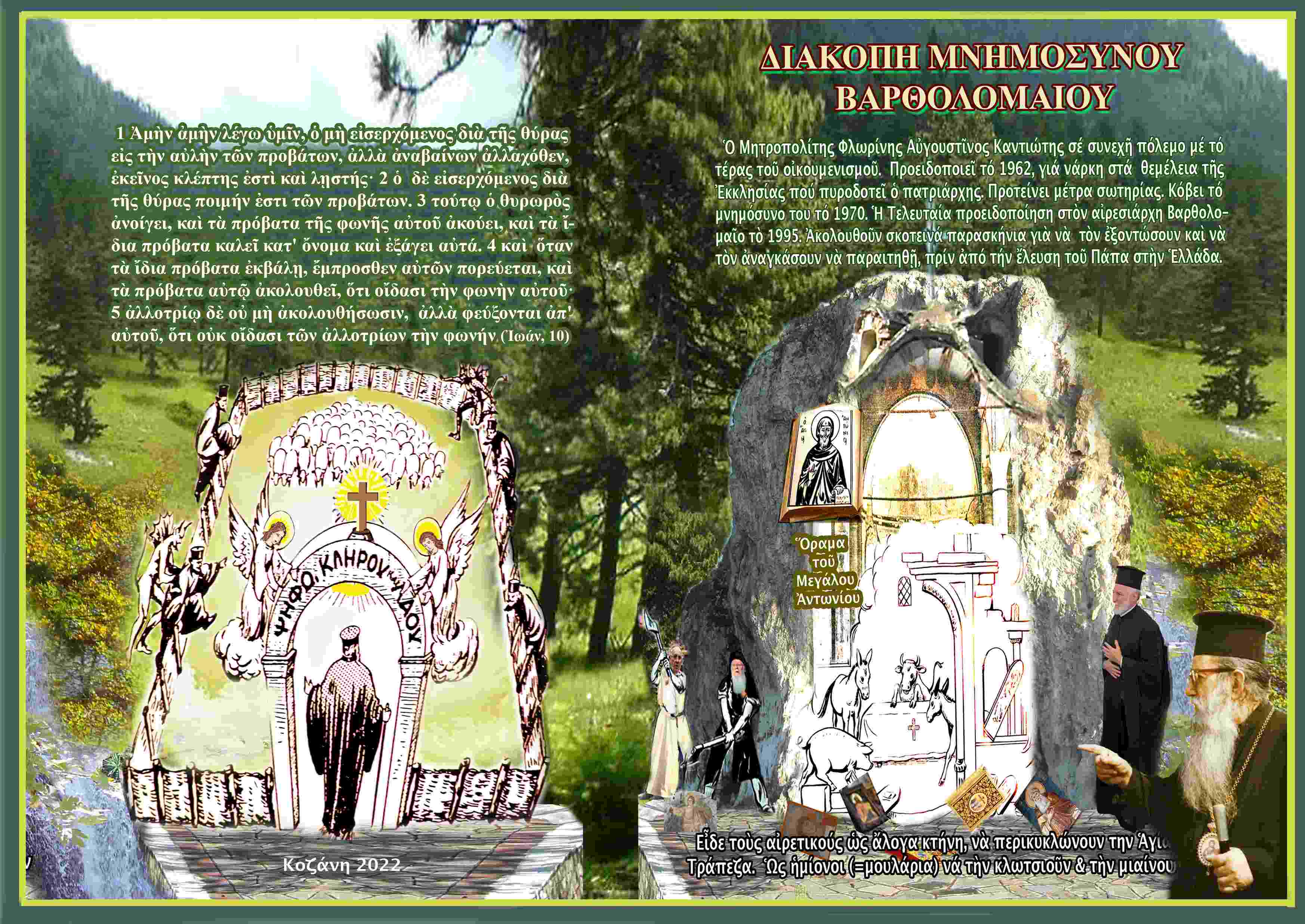

 Be the first!
Be the first! 
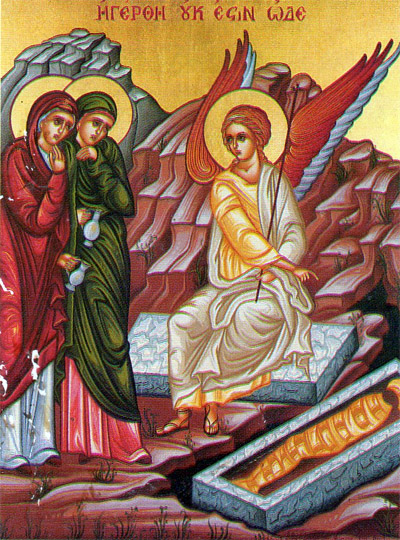 Today’s Sunday is called the Sunday of the Myrrh-Bearing Women. The Myrrh-Bearers are those women who, in spite of the fear spread by the enemies of Christ, dared to go to Golgotha before Sunday’s dawning, to anoint Christ’s body with myrrh. Because of their ardent love and faith, they were the first to hear the glad news of Christ’s resurrection and to become the evangelists to the disciples who were terrified and hiding at a friend’s house. The disciples were timid! The myrrh-bearing women were brave. In that situation, the women proved to be incomparably greater than the men.
Today’s Sunday is called the Sunday of the Myrrh-Bearing Women. The Myrrh-Bearers are those women who, in spite of the fear spread by the enemies of Christ, dared to go to Golgotha before Sunday’s dawning, to anoint Christ’s body with myrrh. Because of their ardent love and faith, they were the first to hear the glad news of Christ’s resurrection and to become the evangelists to the disciples who were terrified and hiding at a friend’s house. The disciples were timid! The myrrh-bearing women were brave. In that situation, the women proved to be incomparably greater than the men.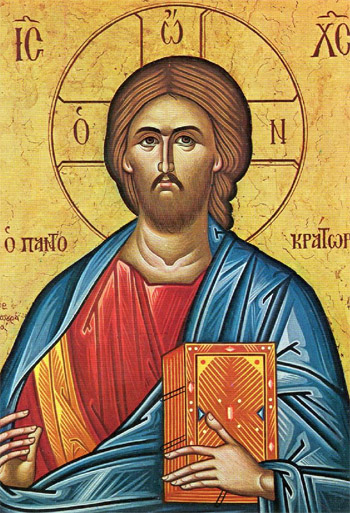 In our last homily, we saw what the names, LORD, Jesus, and Christ mean. In addition to these three names, the second article of the Symbol of Faith adds yet another name when it speaks about Christ. The name is SON OF GOD.
In our last homily, we saw what the names, LORD, Jesus, and Christ mean. In addition to these three names, the second article of the Symbol of Faith adds yet another name when it speaks about Christ. The name is SON OF GOD.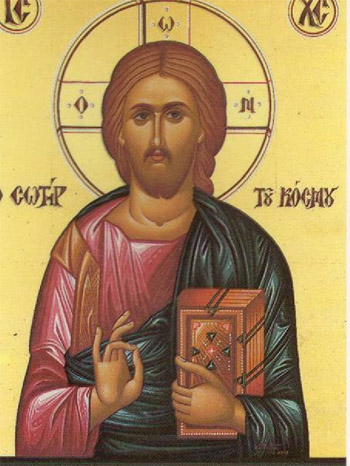 Our Lord is a sign that has been contradicted. People have made war over his name. This began on the day of His birth and continues to this day, and will go on until the end of the world. No other person in history was fought over so much as Christ. Unbelievers and atheists reject Him; heretics teach ideas which are contrary to the Holy Scriptures and our Sacred Tradition. Heretics, egotists that they are, interpret the Holy Scripture as they wish and think they have discovered something new. Some of them dispute the divinity of Christ, others question the humanity of Christ. Who are they?
Our Lord is a sign that has been contradicted. People have made war over his name. This began on the day of His birth and continues to this day, and will go on until the end of the world. No other person in history was fought over so much as Christ. Unbelievers and atheists reject Him; heretics teach ideas which are contrary to the Holy Scriptures and our Sacred Tradition. Heretics, egotists that they are, interpret the Holy Scripture as they wish and think they have discovered something new. Some of them dispute the divinity of Christ, others question the humanity of Christ. Who are they?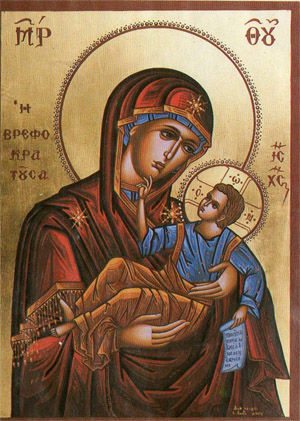 Dear friends, humanity is the summit of earthly creation, and if God created nothing else, mankind would be enough to testify that there is a God, an all-wise God, omnipotent and benevolent. What an excellent creation man is! We see a beautiful statue and admire it, and no one dares to say the statue created itself without the sculptor. But, when compared to a human, what is a statue, even the most perfect one kept in a museum and considered a treasure of infinitive value? The statue is dead, inanimate, idle. It has eyes but does not see, ears but does not hear, feet but cannot walk. Man, however, is alive, with soul, and active and creative statue, which when studied more and more gains more and more admiration. Common sense says that, just as every statue was made by an artist, man was created by God.
Dear friends, humanity is the summit of earthly creation, and if God created nothing else, mankind would be enough to testify that there is a God, an all-wise God, omnipotent and benevolent. What an excellent creation man is! We see a beautiful statue and admire it, and no one dares to say the statue created itself without the sculptor. But, when compared to a human, what is a statue, even the most perfect one kept in a museum and considered a treasure of infinitive value? The statue is dead, inanimate, idle. It has eyes but does not see, ears but does not hear, feet but cannot walk. Man, however, is alive, with soul, and active and creative statue, which when studied more and more gains more and more admiration. Common sense says that, just as every statue was made by an artist, man was created by God.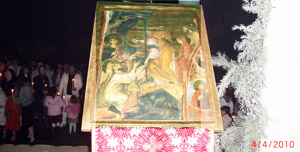 Christ, beloved, the founder of our Holy Church, was a teacher. He taught things that no one before Him had ever taught, and you can be sure that on one, no matter how wise he may be, will ever say greater things than those which Christ has preached. His teaching was the highest of all teaching. There is none higher. Those who read the Bible without prejudice will tell you that of all the other teachings heard both in ancient times and today, no matter how they may dazzle people, none can compare to the teachings of Christ an all are far below that very pinnacle of Christ’s divine teaching. You, too, beloved, open you Bible and read just one page, any page. Wherever you open the Bible, you will see that a river of pure gold runs before you.
Christ, beloved, the founder of our Holy Church, was a teacher. He taught things that no one before Him had ever taught, and you can be sure that on one, no matter how wise he may be, will ever say greater things than those which Christ has preached. His teaching was the highest of all teaching. There is none higher. Those who read the Bible without prejudice will tell you that of all the other teachings heard both in ancient times and today, no matter how they may dazzle people, none can compare to the teachings of Christ an all are far below that very pinnacle of Christ’s divine teaching. You, too, beloved, open you Bible and read just one page, any page. Wherever you open the Bible, you will see that a river of pure gold runs before you.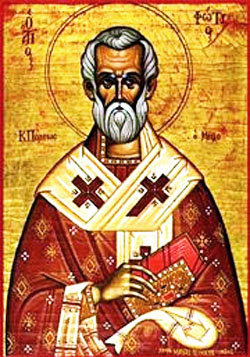 My beloved, we are Orthodox Christians. That is, we belong to the Church which keeps the true faith, that is Orthodoxy. There is no falsehood in Orthodoxy – it is the whole truth. It is like gold which is passed through many furnaces and is one hundred percent pure. This is accepted (declared) by the foreigners, who do not belong to our Church. The Orthodox Church possesses a brightness that draws towards it the man of good intention who wants to know the truth. Therefore we must thank God for our being born Orthodox and ask him that we remain faithful and dedicated children of Orthodoxy.
My beloved, we are Orthodox Christians. That is, we belong to the Church which keeps the true faith, that is Orthodoxy. There is no falsehood in Orthodoxy – it is the whole truth. It is like gold which is passed through many furnaces and is one hundred percent pure. This is accepted (declared) by the foreigners, who do not belong to our Church. The Orthodox Church possesses a brightness that draws towards it the man of good intention who wants to know the truth. Therefore we must thank God for our being born Orthodox and ask him that we remain faithful and dedicated children of Orthodoxy.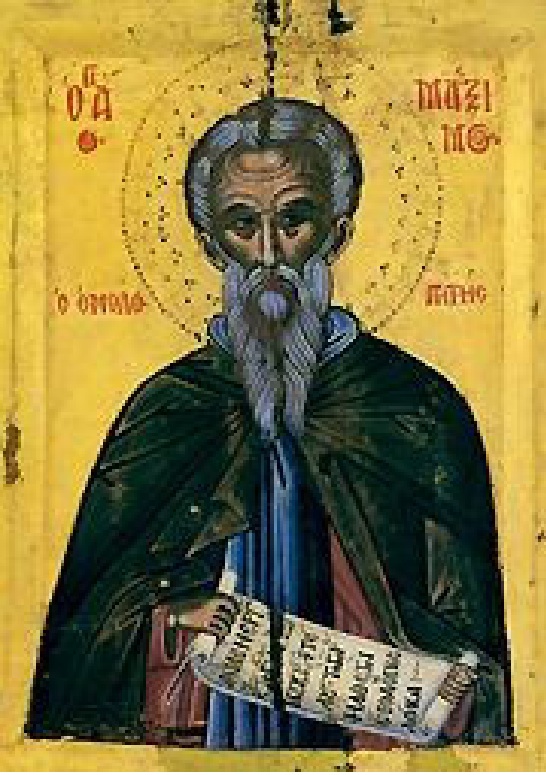 On the 21st of January, my beloved, we celebrate the feast of one of the most brave preachers and confessors of our Orthodox faith, Saint Maximos. To him we dedicate this short sermon.
On the 21st of January, my beloved, we celebrate the feast of one of the most brave preachers and confessors of our Orthodox faith, Saint Maximos. To him we dedicate this short sermon.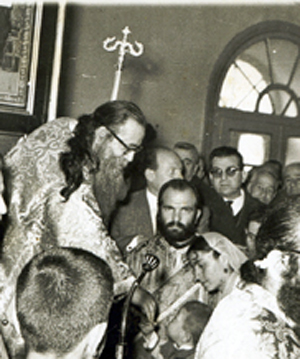 Christian friends, there are twelve articles in the Symbol of Faith. One of them, the first, concerns God. The following six concern Christ. The Creed consists of 174 Greek words. Most of them, 100, speak about Christ. Why is this? Because Christ was disputed by many unbelievers and heretics.
Christian friends, there are twelve articles in the Symbol of Faith. One of them, the first, concerns God. The following six concern Christ. The Creed consists of 174 Greek words. Most of them, 100, speak about Christ. Why is this? Because Christ was disputed by many unbelievers and heretics.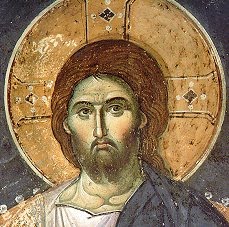 “And in one Lord, Jesus Christ, the Son of God…”
“And in one Lord, Jesus Christ, the Son of God…”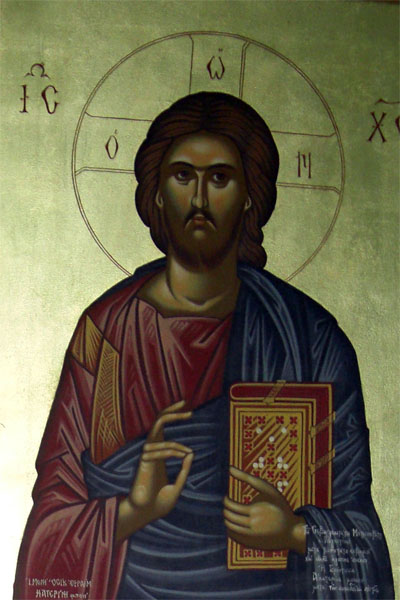 God exists, dear friends, God exists! It is declared in the first article of our Symbol of Faith. Millions of voices proclaim it. Atheism, as we said, has no evidence; it merely dogmatizes. And, as we have noted with atheists and unbelievers, there come certain moments even in their lives when they question their attitudes regarding this most relevant subject. There are also examples old and new concerning people, who, in quiet and peaceful times made much noise, saying ‘there is no God’, but when the blue skies of their lifetime became clouded, when trials and tribulations shocked them and all their worldly foundations were shaken, when they faced catastrophe, then those unbelieving atheists where humbled and they knelt down to pray.
God exists, dear friends, God exists! It is declared in the first article of our Symbol of Faith. Millions of voices proclaim it. Atheism, as we said, has no evidence; it merely dogmatizes. And, as we have noted with atheists and unbelievers, there come certain moments even in their lives when they question their attitudes regarding this most relevant subject. There are also examples old and new concerning people, who, in quiet and peaceful times made much noise, saying ‘there is no God’, but when the blue skies of their lifetime became clouded, when trials and tribulations shocked them and all their worldly foundations were shaken, when they faced catastrophe, then those unbelieving atheists where humbled and they knelt down to pray.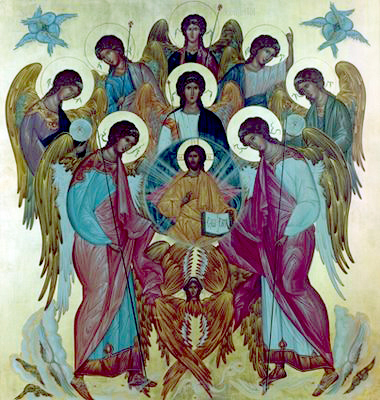 Dear readers, there are many subjects which people busily discuss, wherever they live and whatever their education, but the one topic above all others is that pertaining to God’s existence. People are never indifferent to this subject. Even though some may appear indifferent, there come moments in their lives when this matter sets them off. Is there a God, yes or no? If there is not, then everything is permissible, even the most heinous crimes. If He exists, however, then things are different, and everyone is responsible to the Creator for his actions.
Dear readers, there are many subjects which people busily discuss, wherever they live and whatever their education, but the one topic above all others is that pertaining to God’s existence. People are never indifferent to this subject. Even though some may appear indifferent, there come moments in their lives when this matter sets them off. Is there a God, yes or no? If there is not, then everything is permissible, even the most heinous crimes. If He exists, however, then things are different, and everyone is responsible to the Creator for his actions.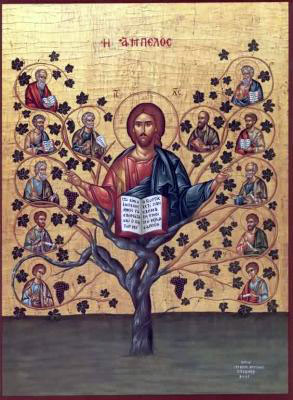 Dear readers, there are many subjects which people busily discuss, wherever they live and whatever their education, but the one topic above all others is that pertaining to God’s existence. People are never indifferent to this subject. Even though some may appear indifferent, there come moments in their lives when this matter sets them off. Is there a God, yes or no? If there is not, then everything is permissible, even the most heinous crimes. If He exists, however, then things are different, and everyone is responsible to the Creator for his actions.
Dear readers, there are many subjects which people busily discuss, wherever they live and whatever their education, but the one topic above all others is that pertaining to God’s existence. People are never indifferent to this subject. Even though some may appear indifferent, there come moments in their lives when this matter sets them off. Is there a God, yes or no? If there is not, then everything is permissible, even the most heinous crimes. If He exists, however, then things are different, and everyone is responsible to the Creator for his actions.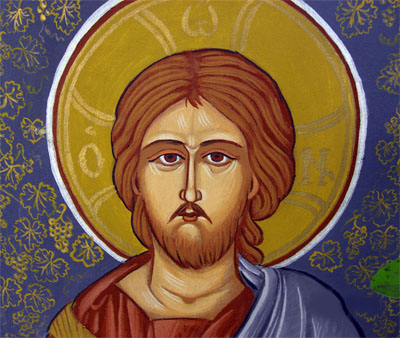 In our last homily, we spoke generally about the Symbol of our Faith, the creed, which is recited at every Divine Liturgy. The Creed is a short statement of the truths that every pious Christian should believe. Because it is short, even those with little formal education can learn and recite it by heart.
In our last homily, we spoke generally about the Symbol of our Faith, the creed, which is recited at every Divine Liturgy. The Creed is a short statement of the truths that every pious Christian should believe. Because it is short, even those with little formal education can learn and recite it by heart.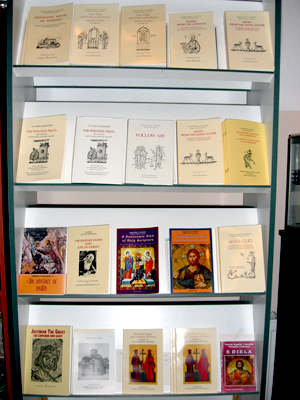 In our previous homily, we explained the expression “The doors, the doors, in wisdom let us attend. We spoke of the meaning this exhortation has. Heretics and unbelievers are not permitted to remain in church, and the faithful who remain should listen reverently and fix their thoughts on what is being said and done in the Liturgy. We said before and we repeat, that it is a sin when the celebrating priest recites the beautiful prayers and petition, read the Gospel and offers up the awesome Mystery, and the cantors chant: it is a sin to be there in body, but absent in spirit.
In our previous homily, we explained the expression “The doors, the doors, in wisdom let us attend. We spoke of the meaning this exhortation has. Heretics and unbelievers are not permitted to remain in church, and the faithful who remain should listen reverently and fix their thoughts on what is being said and done in the Liturgy. We said before and we repeat, that it is a sin when the celebrating priest recites the beautiful prayers and petition, read the Gospel and offers up the awesome Mystery, and the cantors chant: it is a sin to be there in body, but absent in spirit.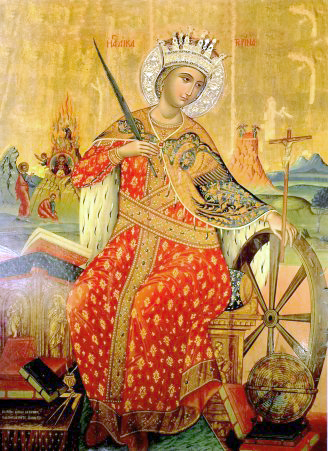 We shall speak about saint Catherine whose feast day is today.
We shall speak about saint Catherine whose feast day is today.